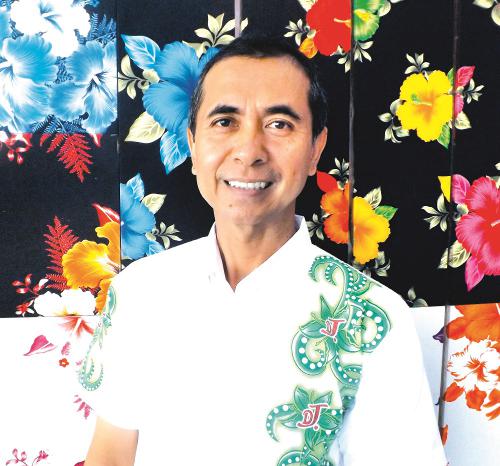Phuket Opinion: Teaching that it’s not rude, it’s just culture

Madunan Chehteek, 47, is a native of Yala who left school at age 15 and came to Phuket to work at age 19. He held various positions at Phuket resorts, working his way up to receptionist, then was a tour guide for five years. He opened his shop, the Madunan shirt and souvenir shop, on the bypass road in 1997.
Here, he explains how understanding customers’ cultural backgrounds is the most important element in providing them with quality service.
PHUKET: There are a lot of businesses on Phuket – restaurants, hotels and shops – that serve tourists. In order to succeed in this competitive environment, we have to offer good products, communicate well, be creative and deliver excellent service. To serve our customers well, the most important thing we have to do is understand their culture.
Phuket tourists come from all over the world, so we need to be able to understand diverse cultural preferences. Understanding our customers is key to creating a positive experience in our shop.
Every time a busload of tourists comes here, I give a short speech, and I tailor it to the nationality of our guests. With Malaysians and Chinese, it’s usually funny. With Europeans and Americans it tends to be more educational, with information about the tsunami and history of Phuket.
We also change our displays depending on which group is coming – for a Chinese group, we’ll put panda and elephant shirts on our mannequins.
Most importantly, we match our service style to our customers.
Malaysian and Indonesian tourists are usually boisterous and relaxed shoppers, but they are afraid of being cheated. Phuket prices are expensive for them, so our strategy is to assure them that our products are high quality and offered at good prices. They get bored if we are too formal, so we try to entertain them by making jokes as we talk about the products. They especially like to buy colorful shirts, and they buy for their families. Since their families are big, they usually buy a lot.
The Chinese tourists are the loudest. They’re very friendly, not shy or formal at all, but they are picky shoppers. They inspect things very carefully. They like to try on a lot of things and compare items. Once they decide they like something, they focus on getting the best price. The older shoppers value price over quality, but the younger ones go more for quality.
European and American tourists like to shop alone. They don’t feel comfortable if staff follow them around the shop. They will ask a staff member if they need help with something. They especially like to buy handicrafts or items which are symbols of Thailand, like handmade bags and elephant shirts.
When it comes time to pay, they line up politely at the cashier’s desk. I’d like to ask the Malaysian and Chinese shoppers to do the same thing, but I don’t think I can.
Thai shoppers, in contrast, like to have staff standing by to take care of them. And they always want a discount. They say, “We are Thai too!”
We easily make Arab shoppers feel happy and like they are with family when they come in and we say “Assalammulaikum“. Another way we help our Muslim shoppers feel comfortable is by requiring our staff to dress modestly. Female staff must wear a head scarf, long sleeve shirts and long pants.
In our weekly staff meetings we talk about cultural issues and teach our staff how to serve customers in each group. We make them understand that different behaviors are not bad or rude behaviors but the product of culture, habits and lifestyles that the staff have to learn about. Every year we take our staff on a field trip to a shop in a different province so they can get new ideas about how to serve and understand customers.
This understanding is key to the success of any business based on service.
— Irfarn Jamdukor
Latest Thailand News
Follow The Thaiger on Google News:
























